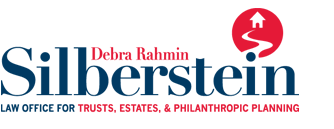Fiduciary Responsibilities
CHRONOLOGY OF ESTATE ADMINISTRATION
- Locate Will and or Trust, if any.
- Obtain several certified copies of the death certificate.
- Identify assets (cash, bank accounts, investments).
- Identify liabilities (doctor, hospital, utilities, credit accounts, mortgages, loans).
- Locate insurance policies and obtain and complete claim forms.
- Notify Social Security Administration of death. If there is a surviving spouse, minor children, or both, apply for Social security death benefits, veteran’s benefits, or both as appropriate.
IMMEDIATELY AFTER APPOINTMENT OF FIDUCIARY
Tax Matters
- Obtain taxpayer identification number for the estate (and trust).
- Request copies of gift tax returns and 1040’s, if necessary.
- Determine who will be preparing decedent’s final income tax returns.
- If returns cannot be filed timely, obtain an extension before the due date.
- Be sure to make the current year’s federal and state estimated tax payments and revise, if necessary. Reg. Sec. 1.6015(b)-1(c)(2), Sec. 1.6153-1(a)(4). If decedent was unmarried, no post death federal estimates need to be paid; however, state filings should be made.
- Determine whether to file a joint return.
- File Form 56 (Notice of Fiduciary Relationship) with the Internal Revenue Service.
- Consider the selection of a fiscal year for the estate and its effect on beneficiary’s income tax liability. (Selection of fiscal year should also be coordinated with estate distributions.)
Administrative Matters
- Open estate checking and bank accounts and set up estate books. (If there is a trust, do likewise.) Always maintain separate accounts: do not commingle a personal and fiduciary account or two fiduciary accounts.
- Collect any life insurance proceeds payable to estate and obtain Forms 712.
- File for and obtain pension payments and annuity benefits. Consider carefully settlement options and their tax consequences.
- If there are homeowner’s insurance policies for dwellings, name the executor and devisees as the insured, or add the executor and devisees as the insured.
- Arrange for professional appraisals of real estate and tangible personal property, as necessary. Generally, professional appraisals of tangible personal property are required if the value of the property exceeds $3,000. Reg. Sec. 20.2031-6(c). (Cost of appraisal is paid by estate and deductible on estate tax returns or federal fiduciary income tax return.)
- If decedent had an interest in a lease, review to determine decedent’s rights and liabilities and to consider termination by compromise. Notify landlord where appropriate.
- Notify all banks and other institutions holding the decedent’s funds at his or her death and request date of death balances and income information. In most instances, close these accounts and consolidate them into the estate’s bank account.
- Consider whether ancillary administration is necessary.
- Change dividend mailing address for decedent’s securities if not jointly owned. Change any brokerage accounts in the decedent’s sole name into the name of the estate.




